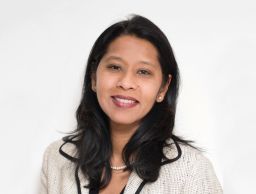Editor’s Note: Sudha David-Wilp is Senior Transatlantic Fellow and deputy director of the German Marshall Fund of the United States’ Berlin Office. The views expressed in this commentary are solely hers.
The warm weather in Berlin is the perfect backdrop for a repeat “Summer Fairytale” this World Cup season. That 2006 documentary captured a confident nation enthralled with the diversity and potential of its football team. Now, Germany’s World Cup champions symbolize the country’s doubts over identity – a consequence of letting in nearly a million asylum seekers in 2015 and frustration over the EU’s lack of cooperation on refugees.
Constant harping from the Alternative for Germany (AfD), a right-wing opposition party, and its ilk all over Europe threaten Chancellor Angela Merkel’s commitment to uphold the vision of a borderless bloc. But now even within her conservative caucus, a rebellion over migration is unfolding – one which could threaten the longevity of her leadership.
As World Cup hosts in 2006, Germans celebrated their promising team of players with different heritages, and waved flags while sporting face paint in black, red and gold. This was a historical marker, because Germans were seldom comfortable with outward expressions of national pride (thanks to their dark past).

But the German Football Association (DFB) gave proof that a different Germany was emerging. Seven players in the 2008 national team had migrant backgrounds, and the DFB ran a pro-integration campaign with a clip featuring the players’ parents, who were of color or wearing a headscarf. It seemed as if Germany had turned a chapter and fully embraced its multicultural society.
Today, those national treasures have been the objects of controversy, as apprehension about identity grows in the face of headlines involving foreigners and violent crime – as well as polarizing rhetoric from the AfD. Soon after the migration wave in 2015, the AfD’s Alexander Gauland claimed that while most Germans admire the black football star Jérôme Boateng, they wouldn’t want him as a neighbor. He later apologized, but this is also an AfD leader that described the Nazi era as merely “a speck of bird poop in 1,000 years of glorious German history.”
It’s not only the AfD that has a problem with certain players. During a pre-World-Cup friendly with Saudi Arabia, German fans booed midfielder Ilkay Gundogan, despite hand motions from trainer Joachim Löw to stop. Gundogan and teammate Mesut Özil, both of Turkish descent, took an ill-advised photo last month with Turkish President Recep Tayyip Erdogan. Gundogan even gave him a jersey with the regrettable phrase “to my president,” which added to the uproar. Gundogan said he had no intention of making a political statement and pledged his loyalty to German values. Both players met with German Federal President Frank-Walter Steinmeier in an act of mea culpa and to quell the public outcry.
But with tensions growing over the last three years, the question remains why it’s reaching new heights now. Certainly, the AfD is fueling anxiety, but there have also been unsettling developments with regard to refugees. Although migration flows have dropped, public debates about integration are ongoing – particularly as acts of anti-Semitism, linked to the growing Muslim community, and the murders of young women, linked to asylum seekers, dominate the headlines. The latest case of a fourteen-year-old victim involves an Iraqi, who had been previously denied asylum.
Furthermore, the initial euphoria that Germans felt for helping refugees has diminished, especially since they increasingly see themselves as alone in their quest. To their east, Hungary and Poland have been resistant to migration quotas, while traditional EU partners such as France and Italy have bickered about the migrant ship Aquarius.
Compounding the situation are weak management and resources on the part of the German authorities. The Federal Office for Migration and Refugees (BAMF) has been chronically short-staffed and is suspected of nodding through asylum applicants without thorough vetting. Take the BAMF branch in Bremen, whose head official is facing accusations of bribery, which has been found to have wrongly granted protection status to over 1,000 migrants. It’s also said to have approved 44 applicants with established Islamist connections.
However, there are ways Merkel can mitigate both the influence of the AfD and rebels within her own caucus as well as government mismanagement. With a strong economy and $73 billion more in tax revenue over the next four years than originally projected, Merkel should channel some of those resources into reforming BAMF. If BAMF can improve its ability to detect fraud and grant asylum to those who are truly deserving, then – in addition to strengthening Merkel’s position – it will silence some of the hardliners who claim asylum seekers are putting Germans at risk.
Merkel stands by her decision to let in refugees based on humanitarian grounds. The next step in her “we can do it” policy is to show her electorate and the EU that Germany can be a migration champion by empowering domestic authorities to process the backlog of asylum applicants, implementing integration programs promoting democratic values and deporting criminals. Otherwise, her decision to set a compassionate and open example for Europe will bedevil her fourth term in office. After the German team lost to Mexico in the first game, Merkel can’t rely on the National 11 to bring back positive memories from that magic summer of 2006.




